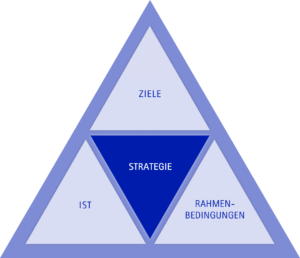
Mission
SIBE’s mission / guiding principles
SIBE’s mission is based on the following two aspirations and commitments:
- SIBE offers a framework in which people can develop into creative personalities . A creative personality is characterized by the ability to recognize opportunities clearsightedly, to approach them courageously, to think them through carefully, to judge them prudently and responsibly, and to transfer them into value-creating realities.
- SIBE provides a framework in which ideas can develop into high-quality innovations . A high-quality innovation is characterized by the fact that the “New” is not only different from the existing but that it also adds more value in a comprehensive sense.
These aspirations and commitments apply to SIBE’s teaching, research and the corporate culture. The teaching at SIBE enables students to develop a perspective on life that is shaped by discovering, understanding, evaluating, realizing, and leading. Research at SIBE stands for successful and impactful knowledge transfer between science and industry. SIBE’s corporate culture is characterized by social practices, structures, and processes that enable SIBE to meet its aspirations and commitments as a loyal and trustworthy partner. Thus, we – SIBE’s teachers, staff and managers – want to empower our graduates with our study programs to be very successful through a creative personality that enables them to realize value-creating and sustainable contributions in companies, organizations and society. Because your success is our success!
 The Steinbeis Foundation’s “transfer concept” guides the entire teaching offer of Steinbeis University. Essentially, this transfer is accomplished since all certificate, bachelor’s, master’s, and doctoral programs are organized according to the so-called “project competency principle”. Due to the qualitative and quantitative importance of study programs as a core competency of Steinbeis University, this principle is implemented using the example of the “Experience Based Curriculum” (EBC).
The Steinbeis Foundation’s “transfer concept” guides the entire teaching offer of Steinbeis University. Essentially, this transfer is accomplished since all certificate, bachelor’s, master’s, and doctoral programs are organized according to the so-called “project competency principle”. Due to the qualitative and quantitative importance of study programs as a core competency of Steinbeis University, this principle is implemented using the example of the “Experience Based Curriculum” (EBC).
- A master’s program at SIBE always follows the principle of the Experience Based Curriculum (EBC).
- The EBC is the specific design of the project competence study program of Steinbeis University by SIBE.
- The EBC at SIBE is characterized by an interaction between the three elements of theory, action, and reflection. These three elements play an equally important role in the educational process and SIBE’s curricula.
- Within the framework of the EBC at SIBE, students are asked to transfer the theory they have learned and deepened during their (self-) studies into actions in (business) reality and to make them tangible (transfer). In (written) project study papers and (oral) presentations, students reflect on the real-world projects they implement in the company throughout the duration of the master’s program. Parallel to this, students also reflect on their own individual competency development – and thus on their personal development.
In this way, SIBE’s EBC offers excellent conditions for personal development, which is a necessary condition of tertiary education.
Compared to traditional higher education, in which usually two protagonists – university and student – act together, the EBC involves the interaction of three protagonists: University, student, and company.
Here, the project is an integral transfer instrument between theory and practice: During the SIBE master’s program, the project ensures that the student transfers the initially general, scientifically based knowledge into actions within a very specific business environment. It is precisely this active momentum of transfer and the accompanying or subsequent reflection that ultimately develops competencies.
SIBE’s curriculum and the phases of the project in the company are closely coordinated. This enables immediate application and transfer of knowledge that also allows the students to learn directly from their actions. The scientific theories and methods learned in the courses are translated by the students into business practice as part of the project work: as business reality and as consolidated theoretical knowledge.
The focus of the projects is as diverse as the challenges of the companies: Innovative growth strategies, cost optimization, restructuring, new management systems, the development of new target groups, the development of new products, etc. Therefore, the study or company projects form possible areas of specialization within the study program and ensure that the student’s individual interests and goals are consistently pursued and promoted over the entire duration of the master’s program.
